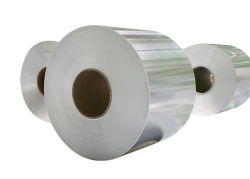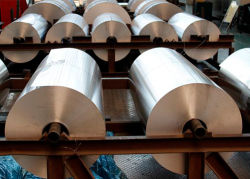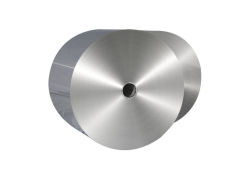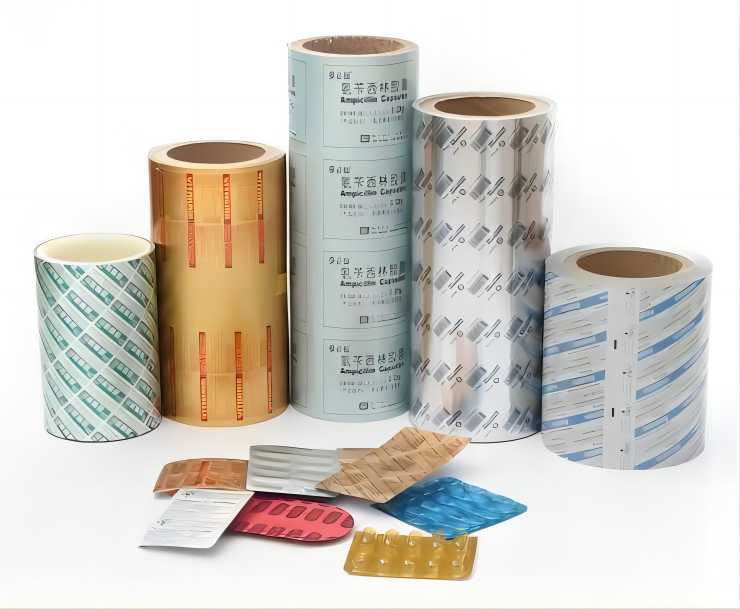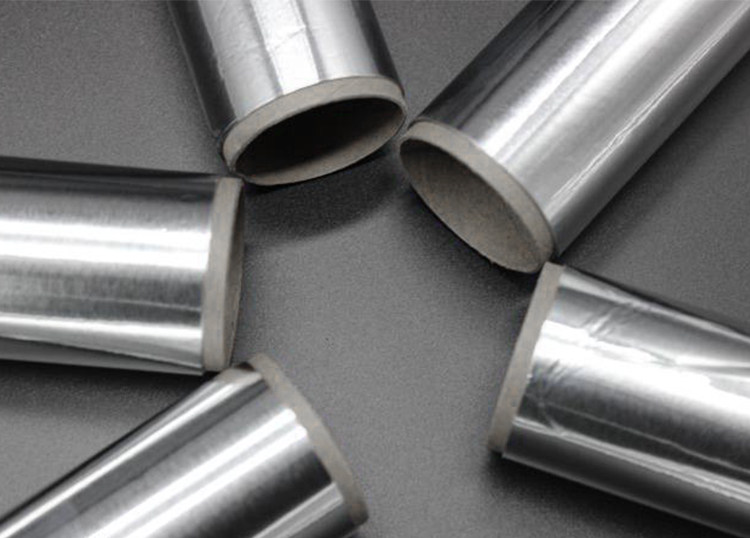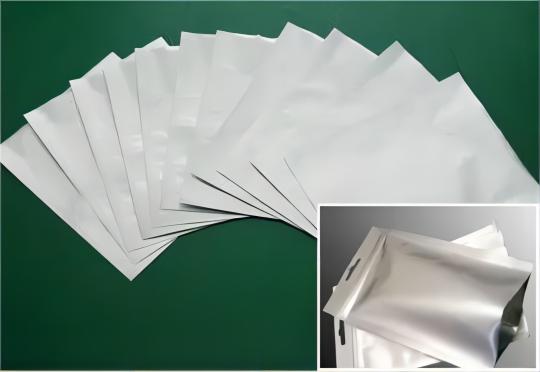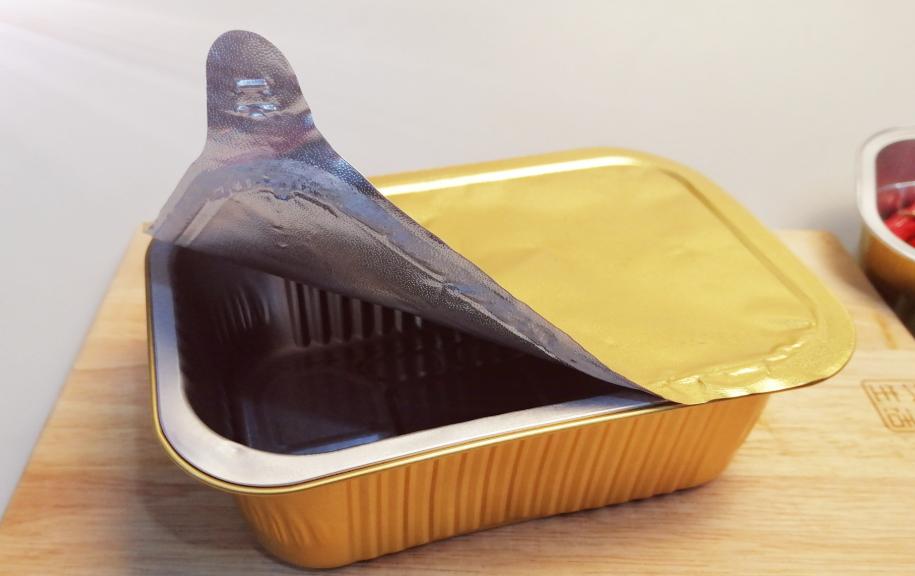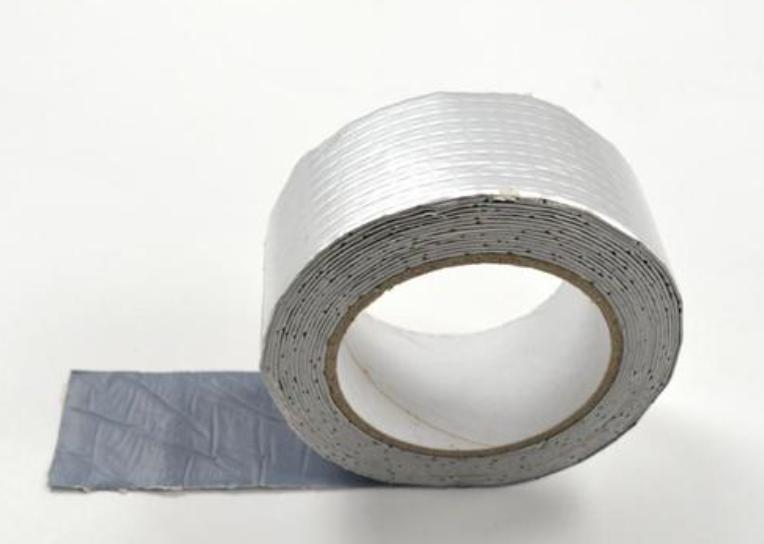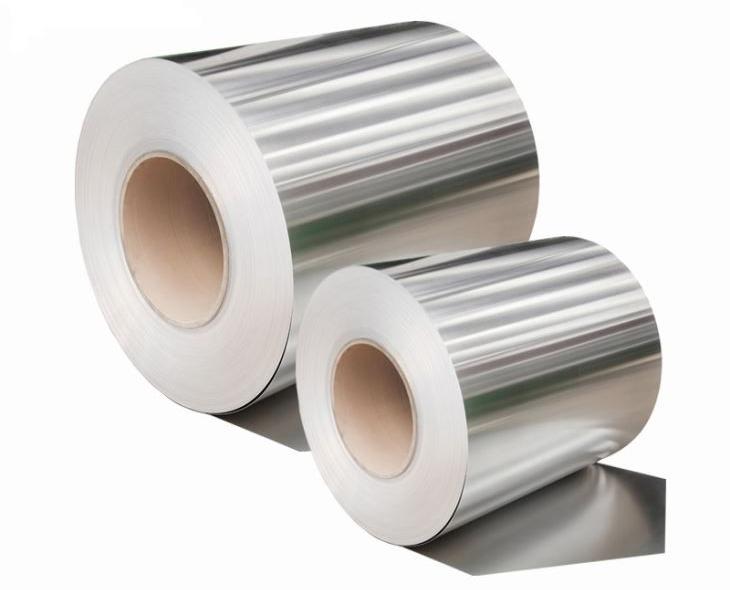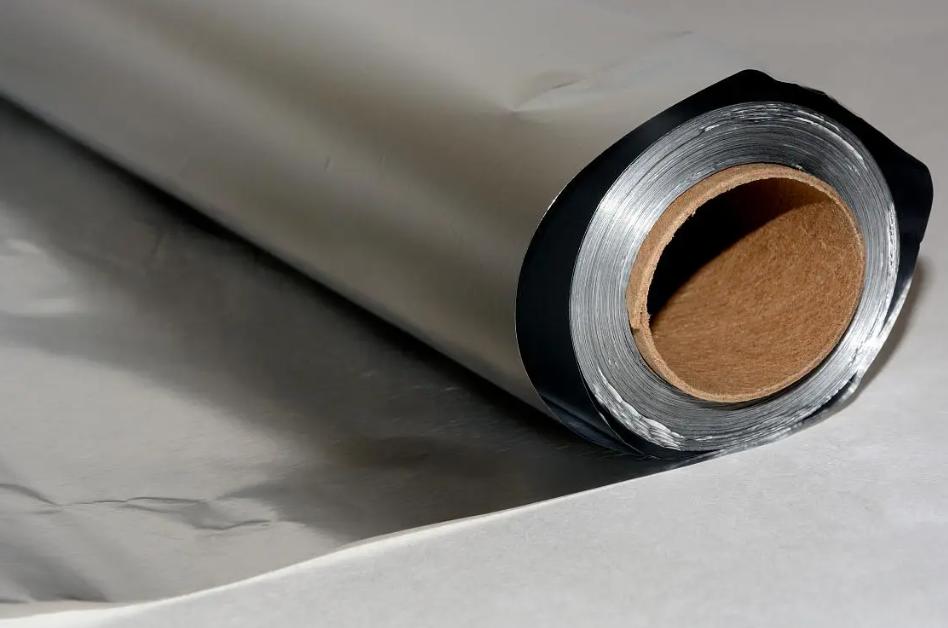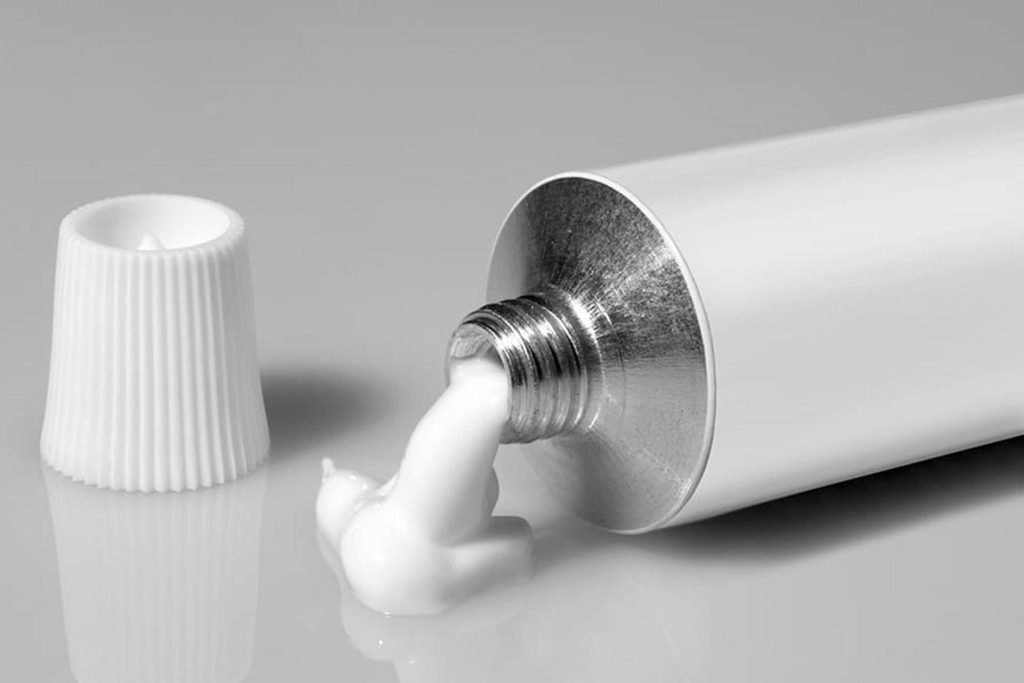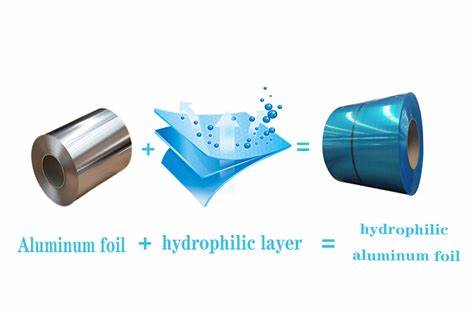Aluminum foil has long been touted as a magical cleaning solution, particularly for tarnished silverware. The idea of tossing a few balls of foil into the dishwasher, along with your silverware, promises a sparkling clean result. However, is this practice truly safe and effective? Let’s delve into the science and explore the potential risks of using aluminum foil in your dishwasher.
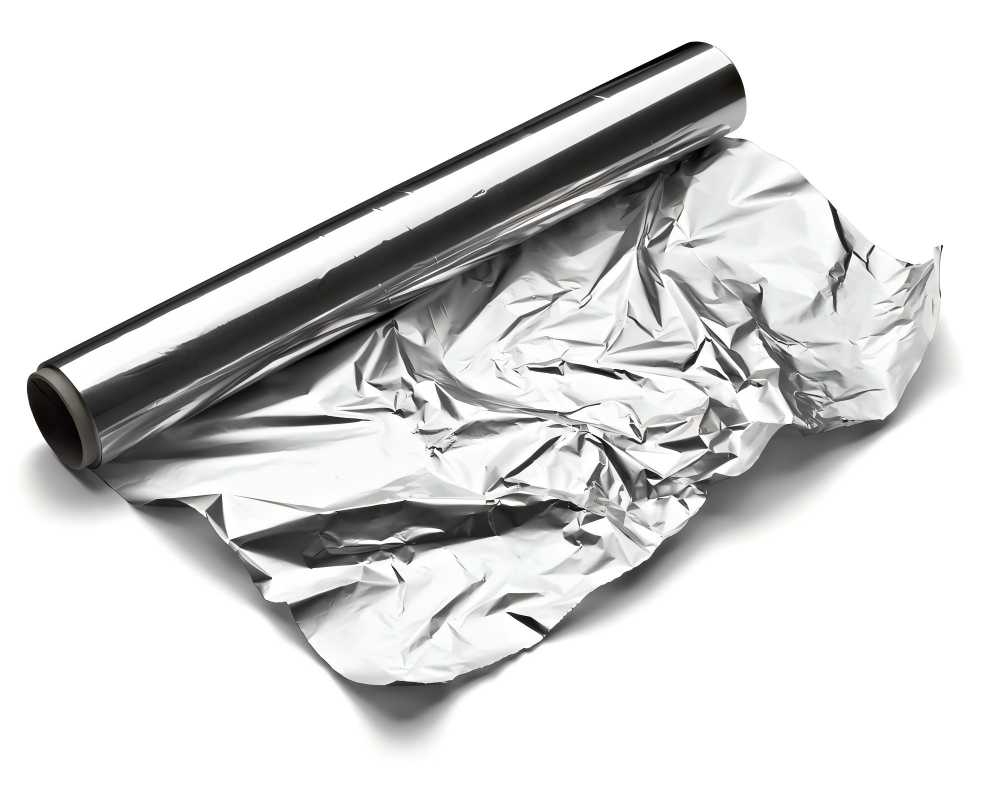
Is it Safe to Put Aluminum Foil in Dishwasher?
The short answer is: generally, no. While it may seem harmless, putting aluminum foil in your dishwasher can lead to a variety of issues, both for your dishwasher and your dishes.
The Science Behind It
Aluminum is a reactive metal. When exposed to water, especially hot, soapy water, it can undergo a chemical reaction known as oxidation. This reaction can lead to the formation of aluminum oxide, a substance that can cause pitting and corrosion on the surface of the metal.
In the context of a dishwasher, this reaction can be exacerbated by the presence of detergents and high temperatures. The harsh environment of a dishwasher can accelerate the oxidation process, leading to rapid deterioration of the aluminum foil.
Potential Risks
Your dishwasher is a complex machine with many delicate components. Introducing aluminum foil into this environment can pose several risks:
- Electrical Short Circuits: Aluminum is a good conductor of electricity. If a piece of foil comes into contact with the heating element or other electrical components, it can create a short circuit. This can lead to a fire hazard or damage to the dishwasher.
- Damage to the Heating Element: The high temperatures in a dishwasher can cause the aluminum foil to melt or warp. This can lead to the foil becoming lodged in the heating element, restricting its ability to heat the water. This can result in longer cycle times and less efficient cleaning.
- Water Damage: If the aluminum foil melts or disintegrates, it can clog the drain pump or other parts of the dishwasher. This can lead to water damage and potential flooding in your kitchen.
The Verdict
While aluminum foil can be effective at cleaning certain types of metal, it’s generally not recommended for use in a dishwasher. The potential risks outweigh the benefits. It’s best to stick to traditional cleaning methods or seek out safer alternatives for cleaning your silverware.
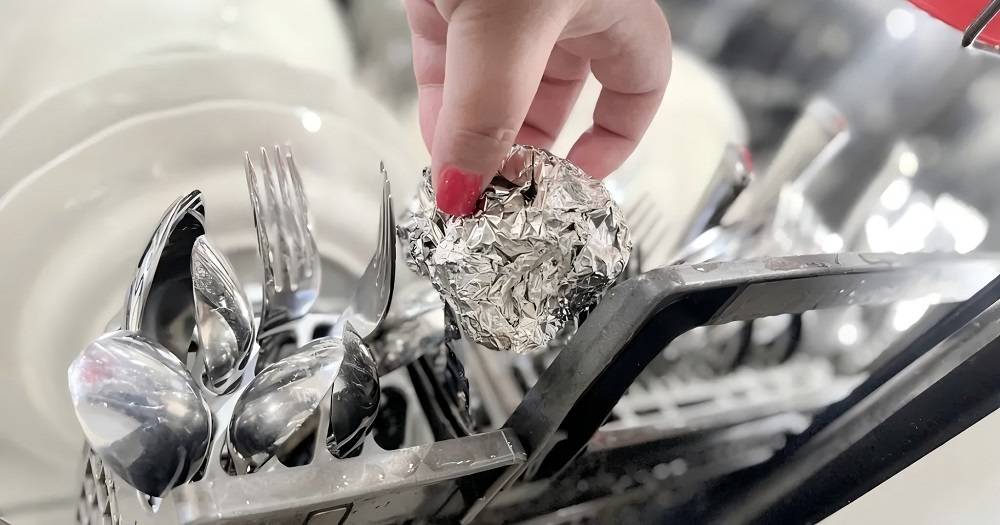
How to Use Aluminum Foil in Dishwasher (If You Insist)
While it’s generally not recommended, if you’re determined to try using aluminum foil in your dishwasher, it’s important to do so carefully and responsibly. Here are a few tips:
- Use a Minimal Amount: Ball up a few small pieces of aluminum foil, no larger than a golf ball. Overloading the dishwasher with foil can lead to issues.
- Place the Foil Strategically: Place the foil balls away from the heating element, spray arms, and other crucial components. A good strategy is to distribute them evenly among the silverware.
- Monitor the Cycle: Keep an eye on your dishwasher during the cycle. Listen for any unusual noises, such as grinding or scraping, which might indicate that the foil is causing damage. If you notice any strange odors or see smoke, immediately pause or stop the cycle.
- Thorough Inspection: After the cycle is complete, inspect the interior of the dishwasher for any remnants of aluminum foil. Remove any pieces that may have lodged in the drain pump, spray arms, or other parts.
Remember, even when used cautiously, aluminum foil in the dishwasher carries risks. It’s always best to consult your dishwasher’s manual for specific cleaning recommendations and to avoid practices that could potentially damage your appliance.
Does Aluminum Foil Affect Other Dishes?
While aluminum foil can be effective at cleaning silverware, it can also have negative effects on other types of dishes. Here are a few things to keep in mind:
- Silverware: Aluminum foil can help remove tarnish from silver items. However, it’s crucial to use the correct technique to avoid scratching or damaging the silver’s surface. Excessive use or improper placement can lead to unwanted marks or discoloration.
- Ceramic and Glassware: The abrasive nature of aluminum foil can scratch the delicate surfaces of ceramic and glass dishes. It’s advisable to avoid using aluminum foil in the same load as these items to prevent damage.
- Plasticware: High temperatures within the dishwasher, combined with the presence of aluminum foil, can accelerate the degradation of plasticware. This can lead to warping, melting, or discoloration of plastic items.
To ensure the longevity and safety of your dishware, it’s advisable to rely on gentle, non-abrasive cleaning methods and avoid using aluminum foil in your dishwasher.

Wrap Up
While the allure of a quick and easy cleaning solution may tempt you to use aluminum foil in your dishwasher, it’s crucial to weigh the potential risks. The harsh environment of a dishwasher can accelerate the deterioration of aluminum foil, leading to various issues, including electrical short circuits, damage to the heating element, and water damage. Additionally, aluminum foil can negatively impact other dishware, potentially causing scratches, discoloration, and chemical reactions.
To ensure the longevity of your dishwasher and the safety of your dishes, it’s recommended to avoid using aluminum foil. Instead, opt for gentle, non-abrasive cleaning methods and rely on quality dishwashing detergents. By making informed choices, you can protect your appliance and maintain the pristine condition of your dishware.

